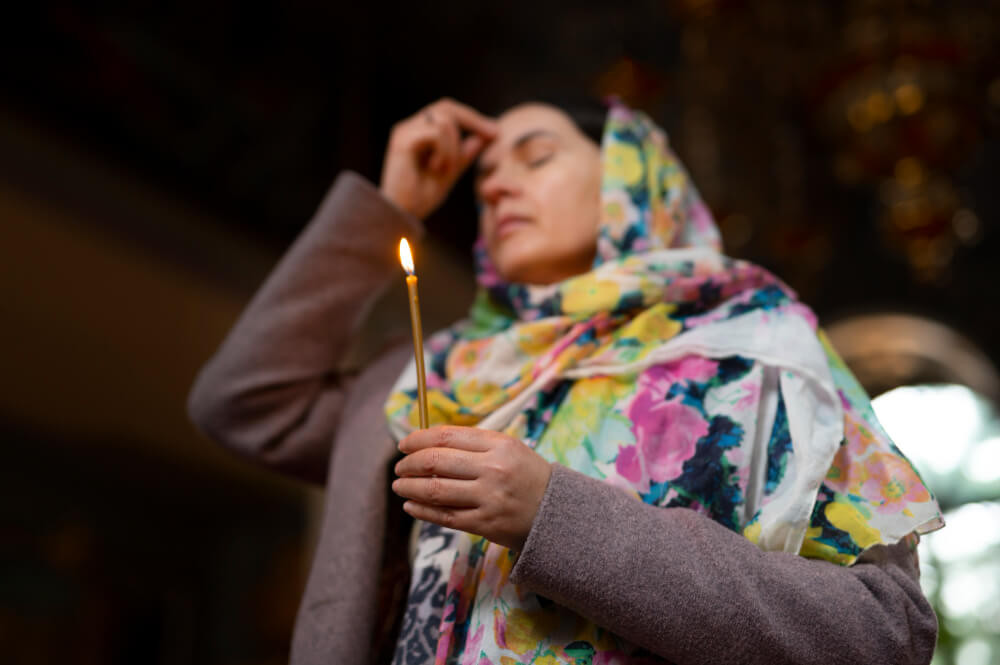| Rosette Rafaat | 2024-03-20 06:35:42 |
In the heart of Egypt, amidst the Nile's gentle flow and the whispers of ancient sands, lies a celebration that transcends time and space – the Coptic Festival 2024. This vibrant event, deeply rooted in Coptic Christian traditions, heralds the arrival of spring with joyous festivities, spiritual reflections, and communal gatherings. As we explore the essence of the Coptic Festival 2024, we encounter a rich blend of faith, culture, and unity intricately interwoven together.
Embracing Tradition: Coptic Festival 2024
Dating back to centuries, the Coptic Festival embodies the rich heritage of Egypt's Coptic Christian community. Each year, families and friends come together to commemorate the martyrdom of saints, the triumph of faith over adversity, and the resurrection of Christ. Amidst the ancient churches and monasteries adorned with colorful banners and fragrant flowers, the spirit of tradition breathes life into every corner of the celebration.
The Spiritual Journey
At the heart of the Coptic Festival lies a profound spiritual journey. Pilgrims from far and wide join in a quest for enlightenment, seeking solace and divine blessings. The air resonates with hymns and prayers, echoing the devotion of the faithful. From the sacred liturgies held in historic churches to the solemn processions that wind through the streets, every moment is imbued with reverence and awe.
Cultural Extravaganza
Beyond its religious significance, the Coptic Festival serves as a platform for showcasing Egypt's rich cultural history. Traditional music fills the air, accompanied by mesmerizing folk dances that tell stories of resilience. Artisans display their craftsmanship, offering intricate handcrafted items that pay homage to Egypt's artistic legacy. With an array of savory dishes and delectable sweets that reflect the country's culinary diversity, attendees are treated to a feast for the senses..
Unity in Diversity
In a world often divided by differences, the Coptic Festival stands as a beacon of unity and inclusivity. People of all backgrounds come together, transcending barriers of religion, ethnicity, and nationality. It's a celebration that fosters understanding, respect, and harmony – a testament to the power of diversity to enrich our lives and strengthen our communities.
Looking Ahead
As we bid farewell to the Coptic Festival 2024, its spirit continues to resonate, inspiring us to embrace our traditions, nurture our faith, and celebrate our cultural heritage. In a rapidly changing world, events like these serve as reminders of the enduring values that unite us as human beings. As we carry the memories of this year's festival in our hearts, let us look forward to the promise of renewal, hope, and unity in the years to come.
Conclusion
The Coptic Festival 2024 has left an indelible mark on the sands of time, weaving together the threads of tradition, faith, and culture into an unparalleled beauty. As we reflect on its significance, let us cherish the memories we've created, and let the spirit of the festival guide us on our journey towards a future filled with hope, harmony, and unity.
FAQs
What day is Coptic Orthodox Easter 2024?
In 2024, Coptic Orthodox Easter, also known as Resurrection Sunday, is celebrated on Sunday, May 5th. However, it's important to note that the date of Easter in the Coptic Orthodox Church is calculated using the Julian calendar, which may differ from the date of Easter in other Christian denominations that follow the Gregorian calendar.
What day is Coptic New Year?
The Coptic New Year, also known as Nayrouz, falls on the 1st of Tut in the Coptic calendar, which corresponds to September 11th in the Gregorian calendar. However, the Coptic calendar is different from the Gregorian calendar, so the date may vary slightly depending on the year and any adjustments made to align the Coptic calendar with the solar year.
Why do Copts celebrate Christmas on January 7?
Copts celebrate Christmas on January 7th due to their adherence to the Julian calendar for religious observances. This tradition dates back centuries, preserving the original timing of Christ's birth. While the Gregorian calendar shifted the date to December 25th, Coptic Christians maintain their historical practice. This difference highlights the diverse cultural and religious expressions within Christianity, yet the essence of Christmas—commemorating the birth of Jesus Christ—remains central. For Copts, January 7th represents a sacred moment of joy and spiritual significance, uniting believers in the timeless message of hope and salvation.
What date is the Coptic Christmas?
Coptic Christmas, also known as the Feast of the Nativity, is celebrated on January 7th in the Gregorian calendar. This date corresponds to the 29th of Kiahk in the Coptic calendar, which is used by the Coptic Orthodox Church for liturgical purposes.
